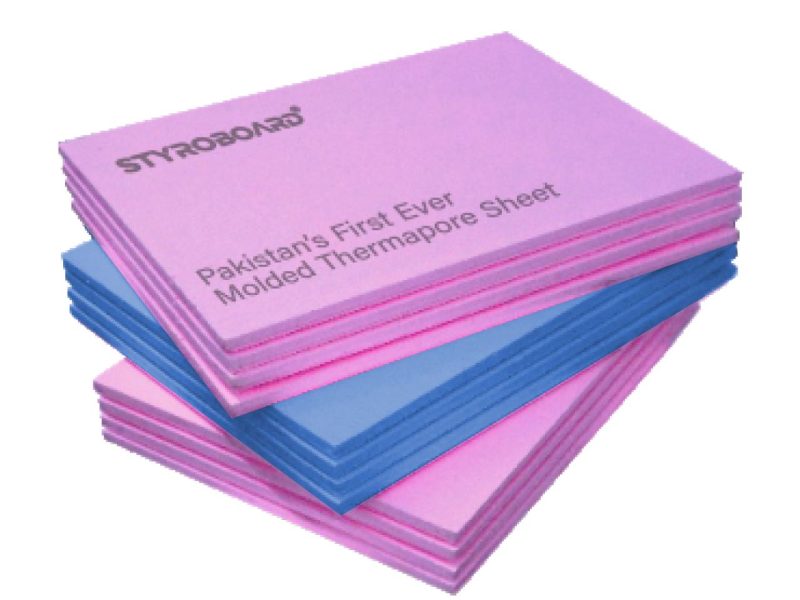
Discover the advantages of thermopore panel for energy-efficient buildings. Learn about their superior thermal insulation, energy-saving benefits, and versatility in residential, commercial, and industrial applications. Explore how thermopore panels can enhance comfort and moisture resistance while reducing utility costs.
Introduction:
In the pursuit of energy efficiency and sustainable construction, thermopore panel have emerged as a game-changing solution. These innovative panels, also known as expanded polystyrene (EPS) panels, offer a wide range of benefits that contribute to enhanced thermal insulation, reduced energy consumption, and improved comfort in buildings. In this comprehensive blog post, we will delve into the world of thermopore panels, exploring their advantages, applications, installation considerations, and their significant impact on creating energy-efficient structures.
Understanding Thermopore Panel:
Thermopore panels are durable and lightweight insulation materials made from expanded polystyrene. They consist of closed-cell foam, which provides excellent thermal resistance and minimizes heat transfer between the interior and exterior of a building. These panels are manufactured in various sizes and thicknesses to suit different insulation requirements.
Benefits of Thermopore Panel:
1. Superior Thermal Insulation: Thermopore panels are designed to deliver outstanding thermal insulation performance. By significantly reducing heat transfer through walls, roofs, and floors, they help maintain comfortable indoor temperatures while reducing the need for excessive heating or cooling. This leads to energy savings and reduced utility costs.
2. Energy Efficiency: The excellent insulation properties of thermopore panels contribute to overall energy efficiency in buildings. By minimizing heat loss or gain, they optimize the performance of heating, ventilation, and air conditioning (HVAC) systems, leading to reduced energy consumption and a smaller carbon footprint.
3. Enhanced Comfort: With their ability to regulate indoor temperatures, thermopore panels create a more comfortable living or working environment. They prevent cold spots, drafts, and temperature fluctuations, ensuring a consistent and pleasant atmosphere throughout the building.
4. Moisture Resistance: Thermopore panels have inherent moisture resistance, making them an ideal choice for areas prone to humidity or water intrusion. They act as a barrier against moisture, preventing the growth of mould, mildew, and rot. This not only maintains the structural integrity of the building but also promotes healthier indoor air quality.
5. Versatility: Thermopore panels can be used in various applications, including walls, roofs, floors, and basements. They are compatible with different construction methods, making them suitable for both new construction and retrofitting projects. Their lightweight nature also simplifies handling and installation.
Applications of Thermopore Panel:
Thermopore panels find extensive use in residential, commercial, and industrial buildings. Some common applications include:
- Residential Buildings: Thermopore panels are widely used in residential construction for insulation in walls, roofs, floors, and basements. They contribute to energy-efficient homes and provide comfort for homeowners.
- Commercial Buildings: From office buildings to shopping centres, thermopore panels are an excellent choice for enhancing energy efficiency and reducing operating costs in commercial structures. They can be seamlessly integrated into various building components to create well-insulated and sustainable spaces.
- Industrial Facilities: In industrial settings such as warehouses and factories, thermopore panels help regulate temperatures and improve energy efficiency. They play a crucial role in maintaining optimal working conditions and reducing energy waste.
- Cold Storage Facilities: Thermopore panels are particularly valuable in cold storage facilities where temperature control is essential. They create a thermal barrier, preserving the cold temperatures required for storing perishable goods.
Installation and Considerations:
Thermopore panels are relatively easy to install, either by attaching them to surfaces or inserting them between framing members. However, it is essential to follow manufacturer guidelines and employ proper installation techniques for optimal performance. It is also crucial to consider factors such as panel thickness, local building codes, and compatibility with other building materials during the selection and installation process.
Frequently Asked Questions
1. What are thermopore panels made of?
Thermopore panels are constructed from expanded polystyrene (EPS) foam, a lightweight and durable insulation material.
2. How do thermopore panels contribute to energy efficiency?
Thermopore panels provide effective thermal insulation, reducing heat transfer and improving building energy efficiency.
3. Where can thermopore panels be used?
Thermopore panels have versatile applications in residential, commercial, and industrial buildings, used to insulate walls, roofs, floors, and basements.
4. Do thermopore panels help with moisture control?
Thermopore panels possess inherent moisture resistance, helping prevent moisture-related issues such as mould and mildew.
5. Are thermopore panels easy to install?
Yes, thermopore panels are relatively straightforward to install, following proper guidelines and techniques.
6. What are the benefits of using thermopore panels?
Thermopore panels offer improved thermal insulation, enhanced comfort, and potential energy savings in buildings.
7. Can thermopore panels be used for retrofitting existing buildings?
Yes, thermopore panels can be utilized for retrofitting projects to upgrade the insulation of existing structures.
8. Are thermopore panels environmentally friendly?
Thermopore panels made from EPS foam are recyclable, making them an eco-friendly insulation option.
9. How long do thermopore panels last?
When properly installed and maintained, thermopore panels have a long lifespan, contributing to the durability of the building envelope.
10. Any considerations when using thermopore panels?
Important factors to consider include panel thickness, compliance with local building codes, and compatibility with other materials.
Please note that consulting professionals and following recommended guidelines are crucial for optimal results when using thermopore panels in construction projects.
Conclusion:
Thermopore panels have revolutionized the field of energy-efficient construction. With their exceptional thermal insulation properties, energy efficiency benefits, enhanced comfort, and moisture resistance, these panels offer an effective solution for creating sustainable and comfortable buildings. Whether in residential, commercial, or industrial applications, thermopore panels provide a cost-effective way to reduce energy consumption, lower utility bills, and contribute to a greener future. Embracing the use of thermopore panels is a step towards creating energy-efficient structures that prioritize both environmental sustainability and occupant well-being.
